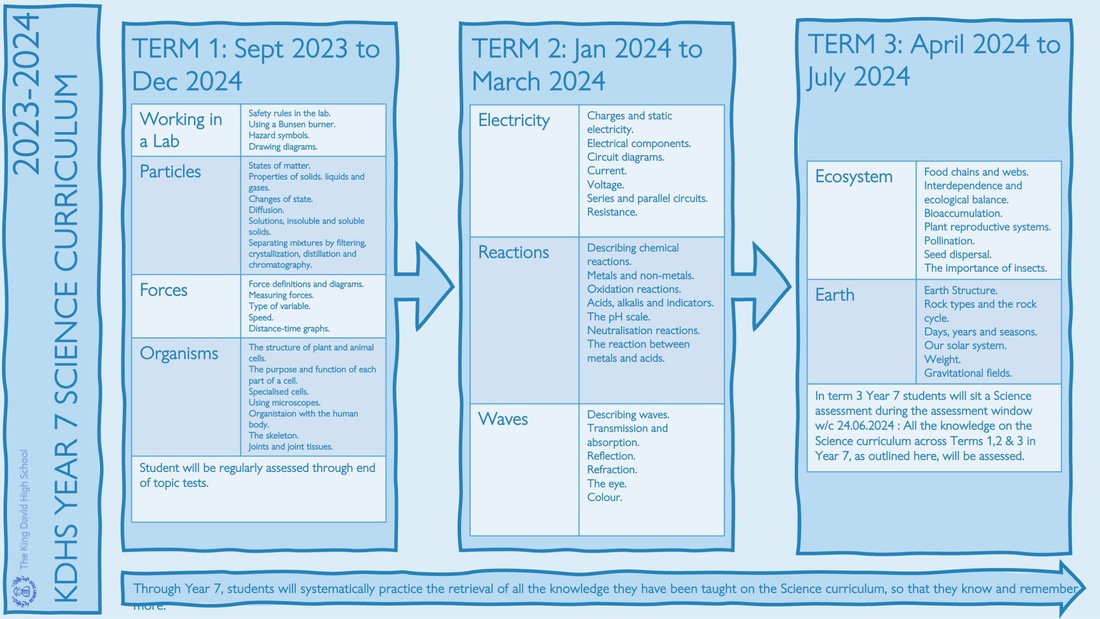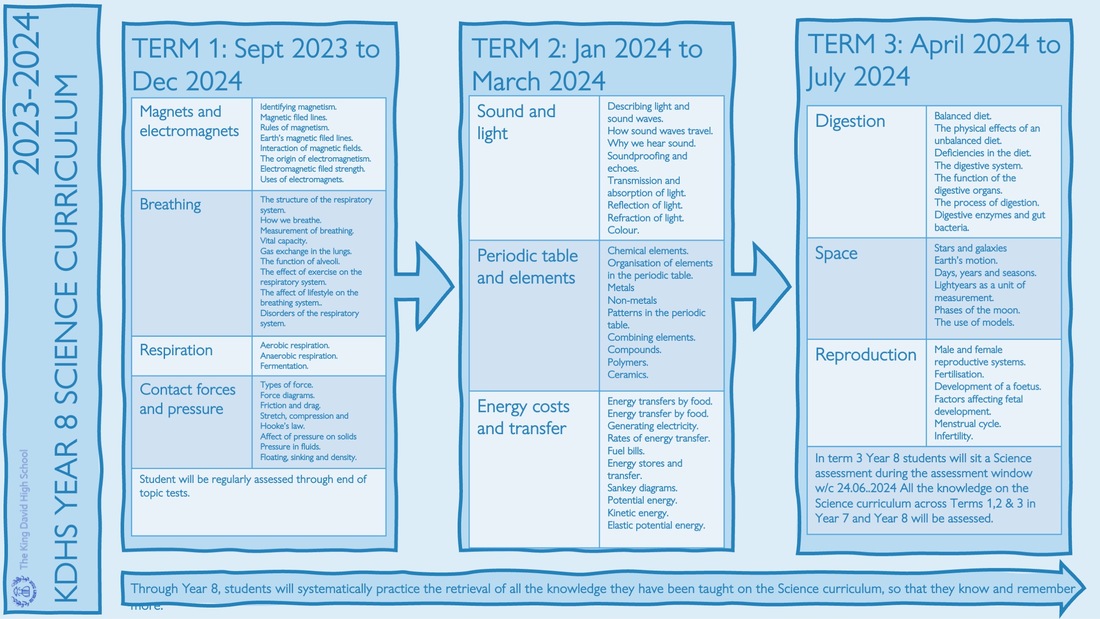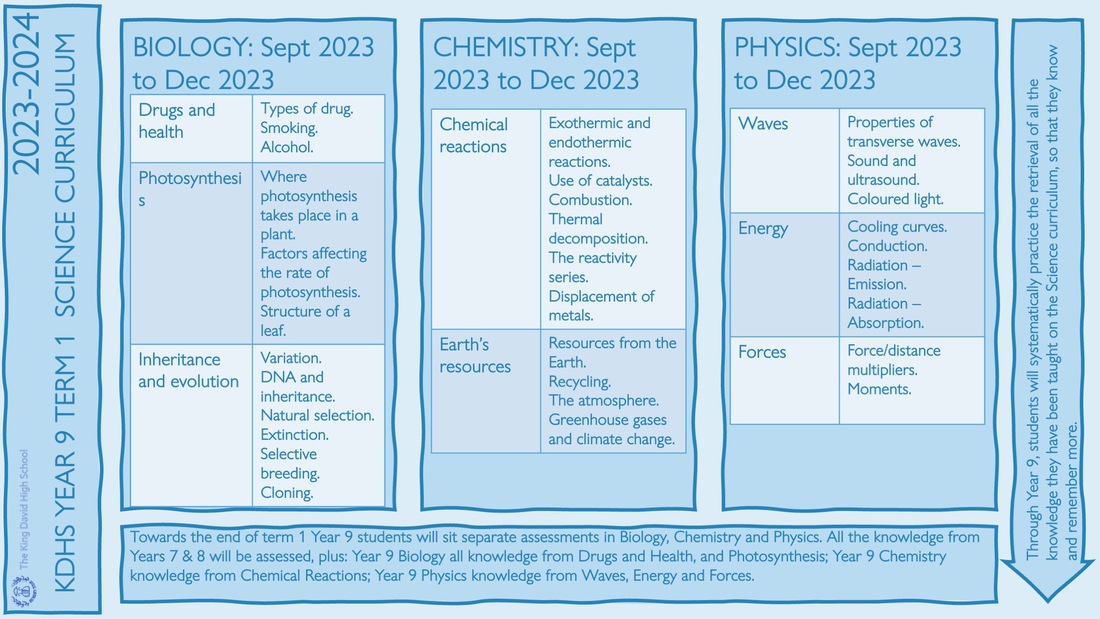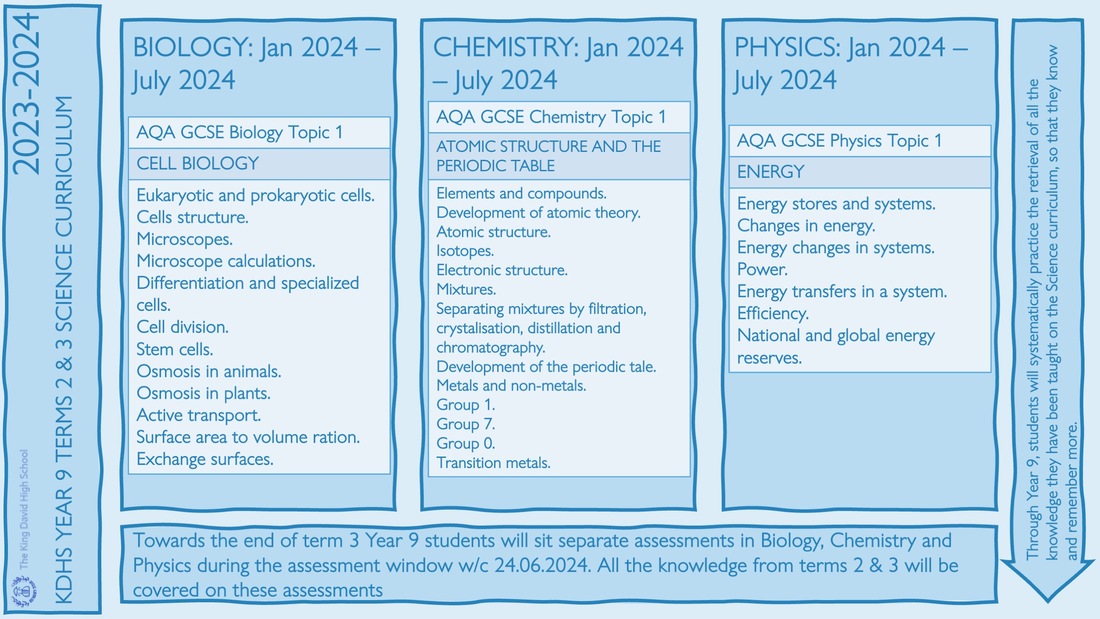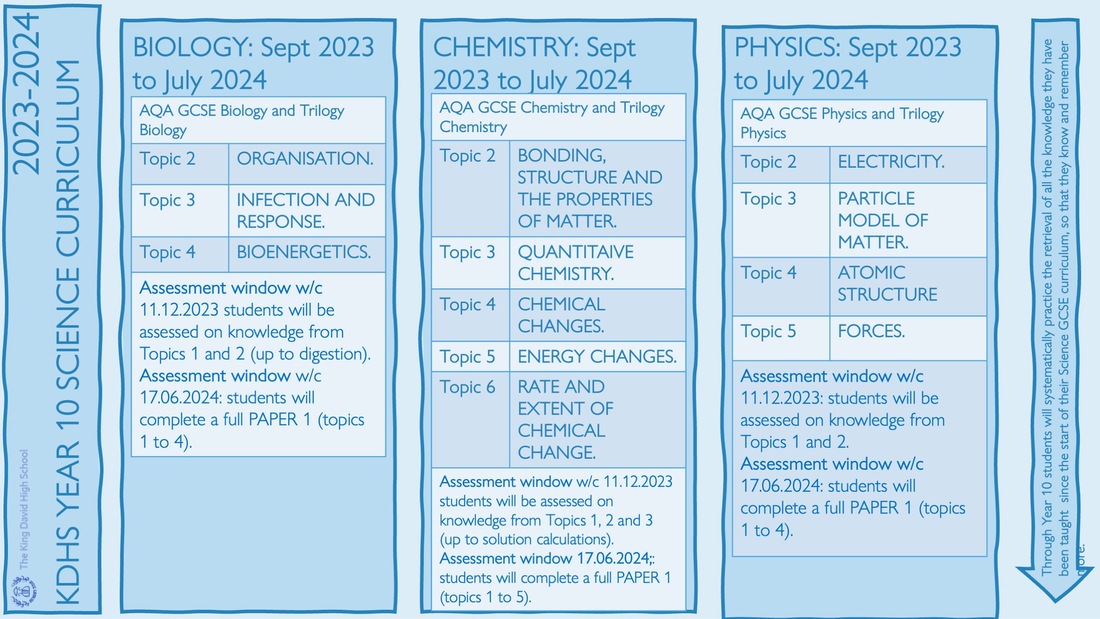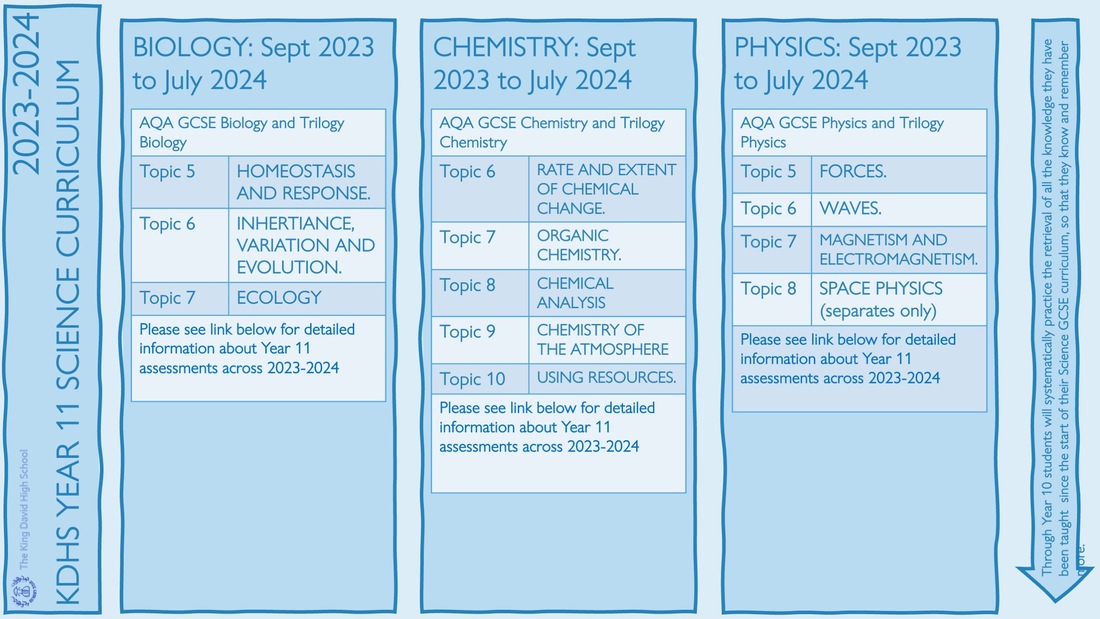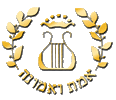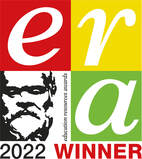ScienceDepartment Staff
Miss. S. Hirst - Head of Department Mr. S. Conroy - Second in Department Mrs. N. Cheetham Mr. Z.Christo Mr. P. Curati Mrs. V. Dansey Mr. R. Kavanagh Mr. J. Oles Mrs. T Silver Mrs. M. Turner Mrs. E. Watson Technical Staff Mrs. E. Thorpe - Head Technician Mrs. D. Burdaky - Lab Technician Mrs. J. Sahile - Lab Technician Science Department Aims and VisionWe want our curriculum to be clear, ambitious, and inclusive, with the aim that it should provide all students with the knowledge, skills and cultural capital they need to succeed in life. We want our students to gain a depth and breadth of understanding that allows them to pursue science beyond Key Stages 4 and 5.
Our curriculum is wide, as well as deep. We believe that the foundation which allows our students to gain the best understanding possible is our focus on the crucial knowledge which forms the backbone of science, knowledge of which students can build upon to develop powerful knowledge and an appreciation of how science is integral to their lives, leading them to know and remember more. Disciplinary knowledge underpins and gives evidence in the elucidation of much of the scientific knowledge we have, we emphasise this in the way in we teach scientific concepts. Practical experimentation is fundamental to the nature of science; it allows our students to appreciate the resilience and perseverance required to be successful in Science in addition to providing an engaging and hands on way for students to participate in their learning. All students at KDHS from Year 7 to Year 11 take some combination of Science subjects. At KS5 Science subjects are optional, but we typically enjoy a good intake of A level students. CurriculumKS3
The National Curriculum for KS3 Science underpins our curriculum in Years 7 & 8, and the first term of Year 9. Year 7 and Year 8 classes have five 1-hour lessons per fortnight delivered by one teacher, Year 9 classes have six 1-hour lessons per fortnight delivered by three teachers (Biology, Chemistry, Physics). KS4
KS4 is taught from the start of Year 9 Term 2. The basis of our KS4 curriculum is the AQA specifications for Biology, Chemistry, Physics and Trilogy Combined Science. At KS4 around two-thirds of our intake take triple Sciences and around one-third take dual combined Sciences. Year 9 classes have six 1-hour lessons per fortnight delivered by three teachers (Biology, Chemistry, Physics). Typically, Year 10 and 11 triple Science classes have seventeen 1-hour lessons per fortnight delivered by three teachers (Biology, Chemistry, Physics); Year 10 and 11 combined Science classes have twelve 1-hour lessons per fortnight delivered by three teachers (Biology, Chemistry, Physics). Click here for Year 11 Assessment Guidance
ActivitiesOur Year 12 Science Writing Project will launch at the start in November. Mrs Cheetham will be in touch will all Year 12 Sciences students in due course.
Mr Christo coordinates MedSoc . This is open to Year 12 and Year 13 students. |
|

